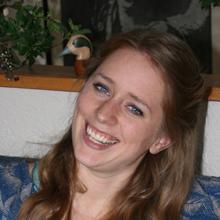Employability is about more than just getting a job – we believe in helping our students gain the necessary experience for a future career, along with the skills to identify opportunities and make the most of them.
At Southampton you will have the opportunity to broaden your options by meeting employers, getting involved in volunteering activities, work placements and much more.
The University’s Career Destinations service offers a wide range of services and support to students at all stages of their university life, and for up to three years after graduation, including:
- support in gaining work experience and exploring future career options;
- an extensive vacancy database of part-time and temporary jobs as well as permanent posts for graduates;
- opportunities to attend talks and workshops on a host of topics including interview techniques and CV writing, many led by leading employers;
- access to five high-profile careers fairs which attract over 150 local, national and international graduate recruiters.
For more information visit the Careers & Employability Service website.
Your Employability
Archaeology is an all-round degree blending academic and practical subjects across arts and science. You will acquire a wide range of key skills that employers look for when appointing graduates. These include presentation skills, use of IT, time management, problem solving and report writing, and analytical skills. Our wide range of assessment methods allows you to develop these skills throughout your degree. Fieldwork in particular provides useful practical experience that can be used in a professional environment. You will gain a thorough knowledge of all aspects of modern archaeology and develop a range of practical and intellectual skills essential for a career inside or outside archaeology. Employers will value your team-working skills acquired from fieldwork, analytical skills gained from interpreting written, numerical and excavated evidence and creativity stemming from a cultural, social and historical awareness.
Employability Opportunities
Alongside your course you can continue your personal and professional development through the Humanities Employability Module and by joining the Archaeology society, in which you can organise events in and outside of the University. As a result you will emerge with organisational, team-working and - if you run for a committee position - advanced leadership skills.
Southampton places a strong emphasis on work experience - allowing you to transfer your Archaeology degree into the work environment and in turn enabling you to develop both personally and professionally. To make this process straightforward, the University offers students the Excel Placement Scheme, where successful candidates take part in 4 - 12 week internships in a variety of fields. If you wanted to pursue a career in archaeology, you might like to find work experience in an archaeological field and your academic advisors will assist you with guidance.
Careers in Archaeology
At Southampton, we teach archaeology to prepare you for a successful career in any field. Our graduates are working in a wide range of different areas including management, the civil service, the media, police, armed forces, and teaching.
Archaeology also manifests itself in careers that some might not expect. For example, gardening includes working with soils and cultivation practices - as does Archaeology. Theatrical scene design involves planning maps and understanding ancient theatres - as does archaeology.
About a quarter of our graduates have pursued a career in archaeology or related subjects. Opportunities exist in practical archaeology as field archaeologists with national bodies and local authorities, in museum curation, or in higher education. We have close links with many archaeological organisations and opportunities exist for placements with several of these bodies over the summer or at the end of your course. This is also helped by further work experience opportunities and careers talks organised by the Archaeology Society.
Recent graduates have gone on to take up a range of careers including Territorial Army officer, teacher, recruitment consultant, health protection coordinator, conference manager, and mortgage advisor. In previous years other graduates have joined the police force, become IT professionals, gone in to the City, or moved on to the graduate Diploma in Law, Legal Practice Course or the Bar Vocational Course.
Other University of Southampton sites

While I initially sought out Southampton for the department's pioneering work in archaeological theory and praxis, I was also delighted to discover a very welcoming faculty and group of intellectual peers that made my time at the university incredibly meaningful and worthwhile.